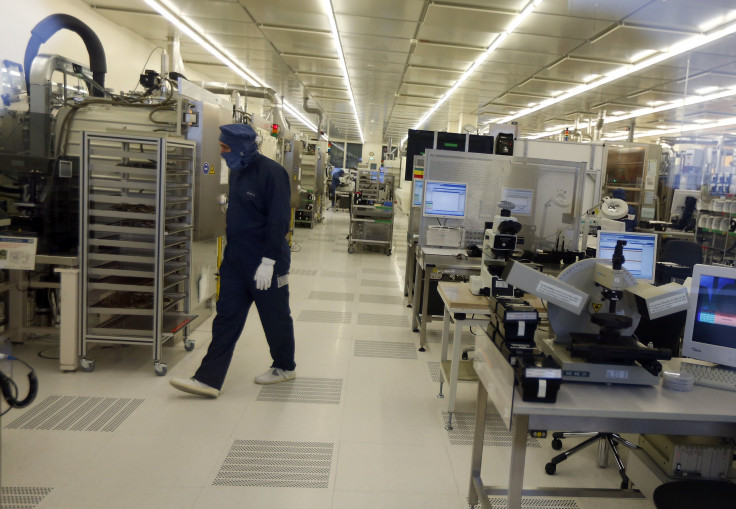Manufacturing Sector On Path To Recovery In Euro Zone, Barring France; UK Continues High Growth

Recovery in the 17-nation euro zone's manufacturing sector continued in August, with Markit’s Purchasing Managers’ Index, or PMI, hitting a 26-month high of 51.4, up from 50.3 in July, as growth improved in Germany, the Netherlands, Austria, Ireland, Italy and Spain, while France and Greece registered a contraction, although the rate of decline in factory activity in Greece eased significantly.
In the UK, manufacturing remained solid to hit a PMI reading of 57.2 in August, considerably higher than 54.8 in July, driven by a sharp increase in output and new orders, the Markit survey showed. The August PMI reading marked a 30-month high and job creation also continued its upward trend for the fourth straight month.
“The UK’s factories are booming again. Orders and output are growing at the fastest rates for almost twenty years, as rising demand from domestic customers is being accompanied by a return to growth of our largest trading partner, the eurozone,” Rob Dobson, a senior economist at Markit, said in a statement.
The uptick in manufacturing activity in the euro zone was driven mainly by improved inflows of new orders, and supported by new export business. In contrast, France saw a decline in new orders and new exports, while Greece saw a decline in production, although its new orders and new exports trends stabilized.
“Although gains are still only modest, companies reported the strongest improvement in business conditions for just over two years, with a pickup in new orders growth suggesting the upturn will be sustained into September,” Chris Williamson, chief economist at Markit, said in a statement.
Despite an upturn, the manufacturing sector in all these countries, barring Ireland, recorded job losses for the nineteenth consecutive month in August, and the pace of reduction was marginally faster than in July, mainly due to faster declines in Germany, Italy and Spain.
“The fact that companies remain reluctant to take on staff [due to the need to cut costs to boost competitiveness and offset rising oil prices] suggests that there’s a long way to go before the recovery feeds through to a meaningful job market improvement,” Williamson said.
Germany’s manufacturing PMI hit 51.8 in August, the highest level since June 2011 and up from 50.7 in July, riding on an improvement in overall business conditions, with consumer goods producers posting the most significant improvement.
French manufacturing activity declined for the eighteenth straight month in August to post a PMI reading of 49.7, same as July’s, and mainly due to a significant downturn in factory output, which offset marginal improvements in new orders and employment.
Spain's manufacturing sector PMI hit 51.1 in August, up from 49.8 in July, to end a 27-month sequence of decline, due to an improvement in output and a sharp increase in new export orders. However, the rate of job cuts was the fastest in four months in August.
Italian manufacturers recorded the fastest growth in 28 months, climbing to a PMI reading of 51. 3 in August, up from 50.4 in July, as new orders rose at an accelerated pace, although jobs continued to decline.
The manufacturing sector in Greece edged closer to the 50-point mark, a level it has not exceeded in four years, as the PMI reading hit 48.7 in August -- the highest in 44 months and up from 47.0 in July. New order intakes held steady, while production fell marginally and at the slowest pace in more than 40 months. However, the decline in jobs continued and the trend is expected to continue until the fall, as manufacturers face inflationary pressures.
A reading above 50 indicates expansion while a reading below 50 shows contraction.
European stocks rallied on Monday following the release of the upbeat data. The Stoxx Europe 600 index surged 1.71 percent, London’s FTSE 100 jumped 1.41 percent, Germany's DAX-30 gained 1.67 percent and France's CAC-40 was trading up 1.67 percent.
© Copyright IBTimes 2024. All rights reserved.





















